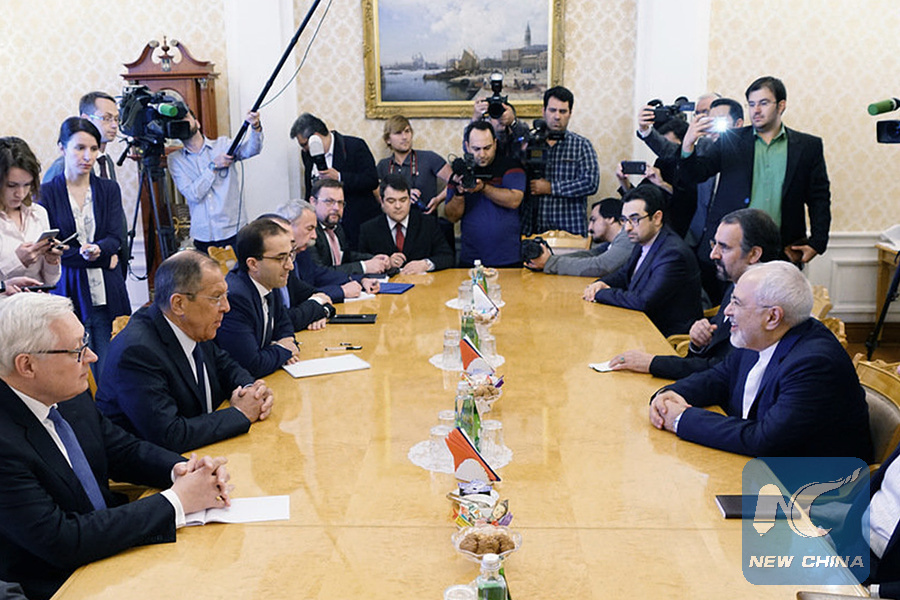
Russian Foreign Minister Sergei Lavrov meets with his Iranian counterpart Mohammad Javad Zarif in Moscow on May 14, 2018.
MOSCOW, May 14 (Xinhua) -- Tehran and Moscow say they will preserve the 2015 Iran nuclear deal despite Washington's decision to withdraw.
"Iran and Russia should guarantee our common interests, which are to preserve the deal and ensure economic benefits for all participants," RIA Novosti news agency quoted Iranian Foreign Minister Mohammad Javad Zarif as saying on Monday following talks with his Russian counterpart Sergei Lavrov in Moscow.
Russia stated that it will adhere to and protect the Joint Comprehensive Plan of Action (JCPOA), also known as the Iran nuclear deal, the report said.
Zarif said after Moscow he will travel to Brussels to meet with EU foreign policy chief Federica Mogherini and foreign ministers of Britain, France and Germany.
"The ultimate goal of all these negotiations is to obtain assurances that the Iranian people's interests guaranteed by the JCPOA will be protected," he was quoted as saying by Interfax news agency on Monday.
There was no press conference following the Lavrov-Zarif talks in Moscow. The Russian Foreign Ministry only said in a brief statement that the main focus of the conversation was the JCPOA and that both ministers agreed to maintain close contact on this issue.
In their opening remarks, Lavrov said Russia, Iran and the other signatories of the deal, including China and three European countries, should together "defend their legitimate interest stipulated by this agreement."
Before visiting Moscow, Zarif went to China on Sunday for talks with Chinese State Councilor and Foreign Minister Wang Yi.
Wang said China will take an "objective, fair and responsible attitude, keep communication and cooperation with all parties concerned, and continue to work to maintain the (Iran nuclear) deal."
U.S. President Donald Trump said last week that the United States would withdraw from the deal, a landmark agreement signed in 2015 by Iran, Russia, the United States, Britain, China, France and Germany.
Trump claimed that the deal had failed to prevent Iran from developing nuclear weapons or supporting terrorism in the region.

